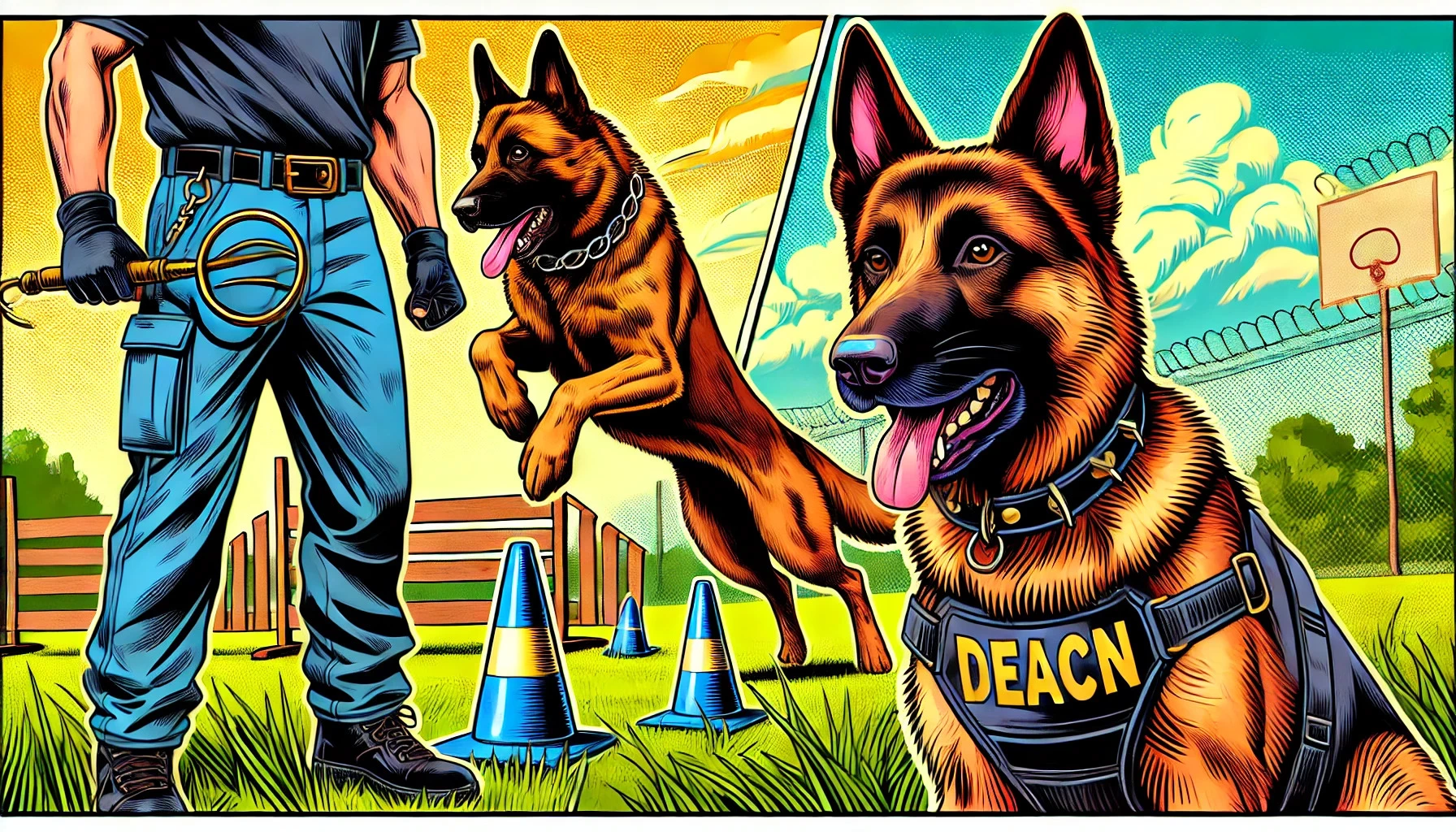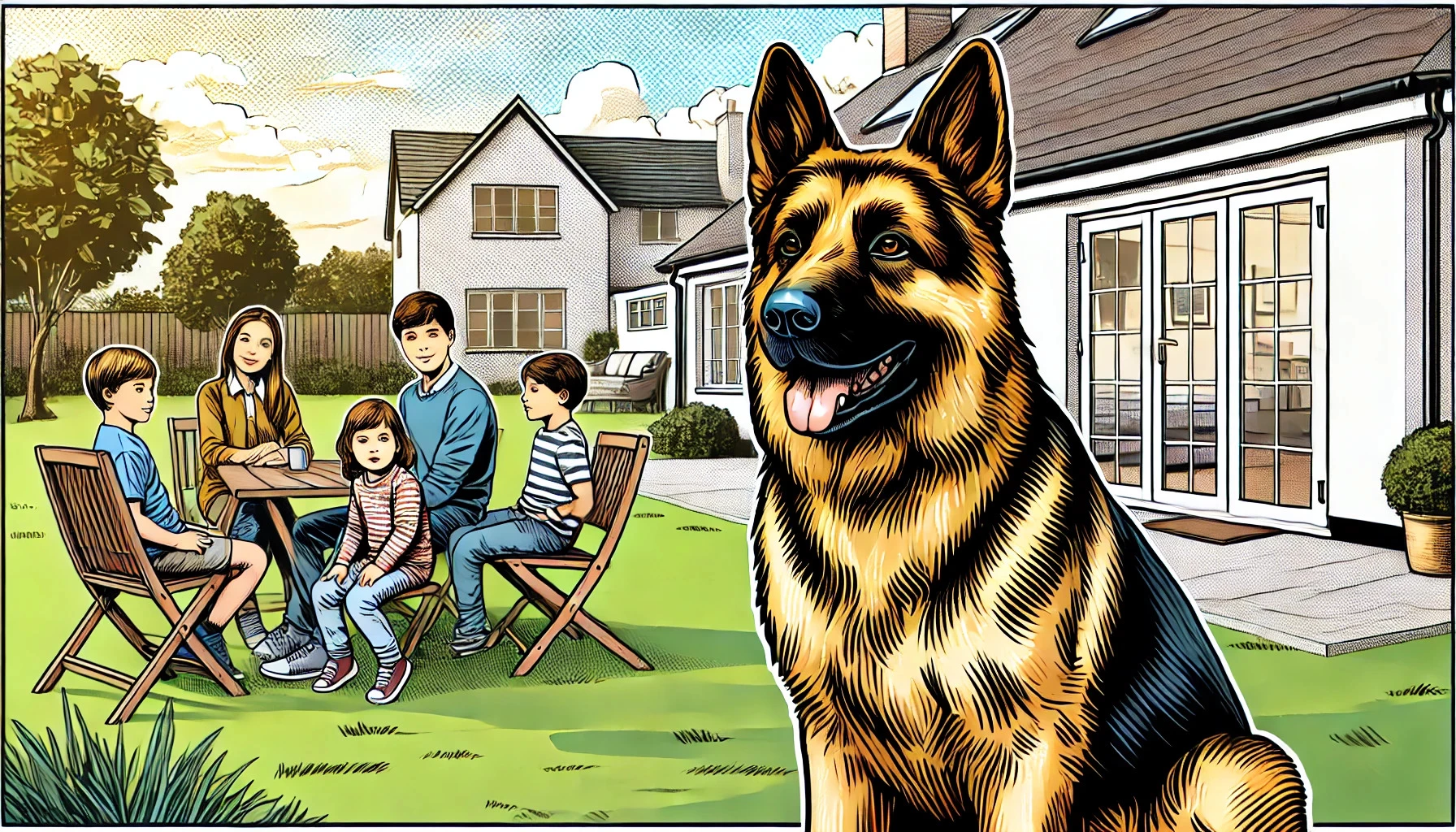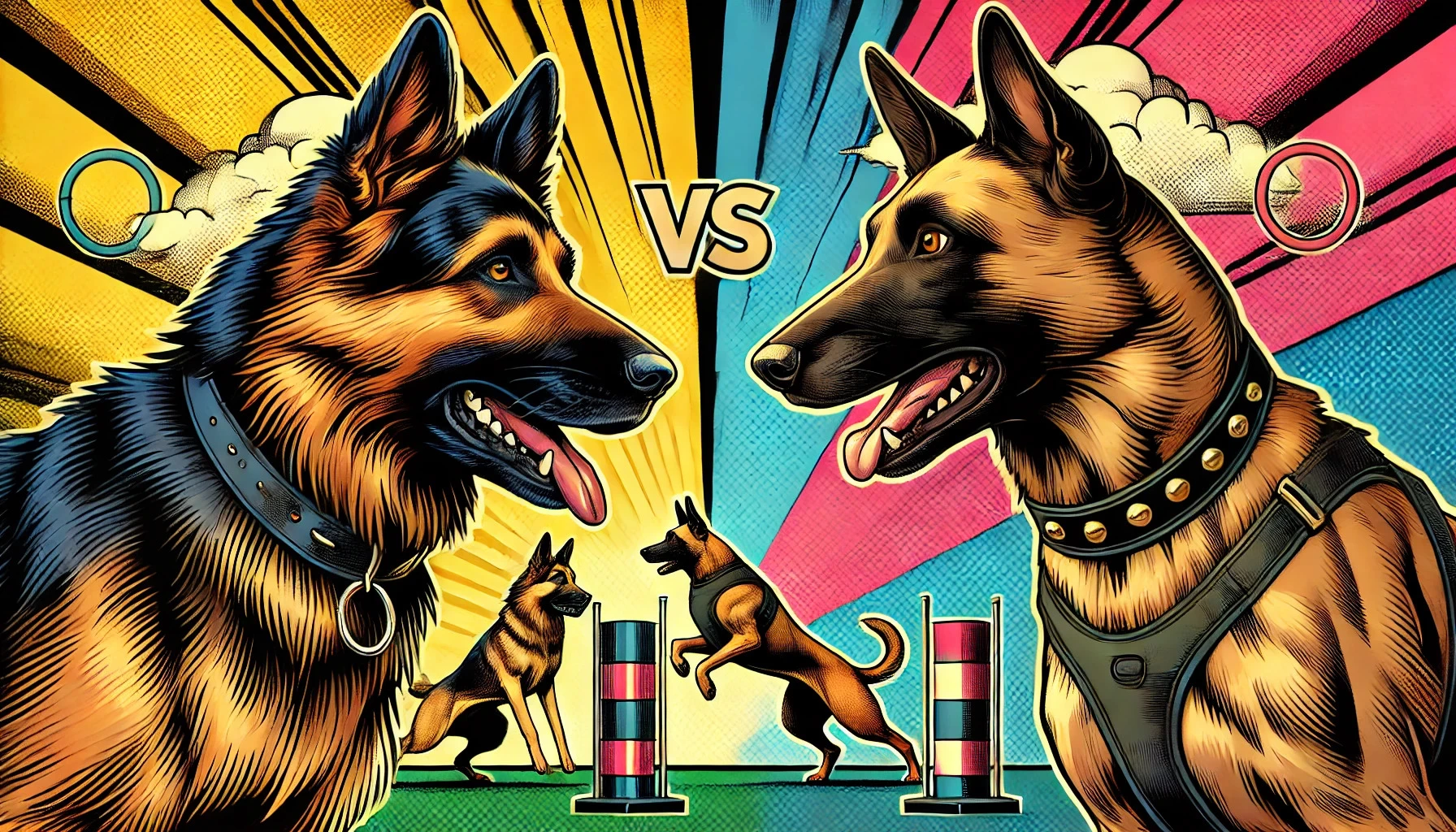On this page
Are German Shepherds and Belgian Malinois effective for protection roles?
Both breeds are excellent, but their suitability depends on various factors. German Shepherds are valued for their intelligence, adaptability, and calm temperament, while Belgian Malinois are prized for their agility, energy, and focus.
Dietary needs also differ. German Shepherds often require glucosamine-rich diets to support their joints and maintain their thick coats. Belgian Malinois, being extremely active, need high-protein, calorie-dense meals to sustain their energy. Understanding these distinctions is essential to choosing the right breed for protection.
German Shepherd vs Belgian Malinois: Do German Shepherds Learn Protection Skills More Easily?
Yes, German Shepherds often learn protection skills more easily in family-oriented settings due to their balanced temperament. Belgian Malinois, while equally intelligent, excel in high-pressure environments requiring quick decision-making.
"German Shepherds adapt well to structured training programs and thrive on consistency," explains Dr. Emily Parker, DVM. "Belgian Malinois are fast learners but need advanced tasks to stay mentally stimulated." German Shepherds are better for households seeking an all-around protector, while Malinois are ideal for specialized roles such as police or military work.
Both breeds benefit from positive reinforcement training, but Malinois may require more physical and mental stimulation to prevent boredom.
Enhance your dog's protection skills with training resources on Dosty App.

German Shepherd vs Belgian Malinois: Are Belgian Malinois So Energetic in Protection Work
Yes, Belgian Malinois are renowned for their unmatched energy levels, which make them exceptional for demanding protection work. Their physical agility and endurance allow them to handle extended tasks without fatigue.
"Malinois have a near-limitless drive, which is why they’re often chosen for roles like search-and-rescue or law enforcement," says Dr. Rachel Lee. "German Shepherds, while energetic, exhibit a more measured approach, making them suitable for families or moderate-paced environments." This high energy means Malinois require at least 90–120 minutes of intense exercise daily, compared to 60–90 minutes for German Shepherds.
Activities like agility courses, frisbee, and scent work are ideal for keeping Malinois engaged. Shepherds, on the other hand, excel in tracking exercises and structured play.
German Shepherd vs Belgian Malinois: Are German Shepherds More Reliable for Families?
Yes, German Shepherds are usually more reliable for families compared to Belgian Malinois. They are calm, protective, and easy to manage in family environments. Belgian Malinois, while loyal, can be too energetic and demanding for homes with small children or first-time dog owners.
"German Shepherds are naturally patient and adapt well to family routines," says Dr. Angela Morris. "Belgian Malinois need a lot of exercise and attention, which can be overwhelming for some families." German Shepherds balance protection and companionship, making them a better fit for families looking for a dependable and loving dog.
Early socialization and regular training are essential for both breeds to ensure they behave well around family members.

German Shepherd vs Belgian Malinois: Do Belgian Malinois Require Less Grooming?
Yes, Belgian Malinois require less grooming compared to German Shepherds, which have thicker double coats that shed heavily twice a year. Malinois have short, dense coats that are easier to maintain.
"German Shepherds need brushing 3–4 times a week, especially during shedding seasons," advises Dr. Emily Carter. "Belgian Malinois only need weekly brushing to keep their coat healthy and free of debris." Both breeds require routine nail trimming, ear cleaning, and dental care, but Shepherds often need more attention during peak shedding periods.
Malinois owners should watch for dry skin in colder climates, while Shepherd owners need de-shedding tools for managing heavy fur loss.
Get grooming reminders and tips tailored to your dog’s coat type with Dosty App.
German Shepherd vs Belgian Malinois: How Do These Breeds Handle Stress in Protection Work?
German Shepherds generally handle stress better in protection work due to their even temperament. Belgian Malinois, while highly focused, can become overstimulated if not given proper outlets for their energy.
"German Shepherds remain calm under pressure, making them dependable in diverse protection roles," says Dr. Sarah Collins. "Belgian Malinois excel in high-intensity environments but require careful management to avoid burnout." Both breeds need structured training to build resilience, but Shepherds may adapt more easily to a variety of situations.
Providing mental stimulation through problem-solving tasks and training exercises helps both breeds cope with stress effectively.
German Shepherd vs Belgian Malinois: Are German Shepherds adapt more easily to apartment living?
Yes, German Shepherds adapt more easily to apartment living compared to Belgian Malinois, who need larger spaces and more intense activity.
"German Shepherds are versatile and can thrive in smaller homes if given regular exercise and mental stimulation," explains Dr. Emily Parker. "Belgian Malinois are best suited for open spaces or homes with large yards, where they can expend their energy freely." Apartment living requires a commitment to daily walks and interactive play sessions for either breed.
For urban protection roles, Shepherds may be the more practical choice, while Malinois are better for rural or suburban settings with ample space.
For more tips visit our page Dosty.co.

Conclusion
German Shepherds and Belgian Malinois are both outstanding protection dogs, but they excel in different roles. German Shepherds offer a calm, reliable presence, making them ideal for families or balanced protection needs. Belgian Malinois bring unmatched energy and agility, thriving in high-demand roles for experienced handlers.
When choosing, consider your lifestyle, space, and ability to meet their training and exercise requirements. Both breeds are loyal and protective, ensuring your safety and companionship.
Discover how Dosty App can help manage training, grooming, and care for your dog.

